    
Chapter 14
Interchangeable with 9 cyl.
(one cyl. lost and the description removed from the tune sheet)




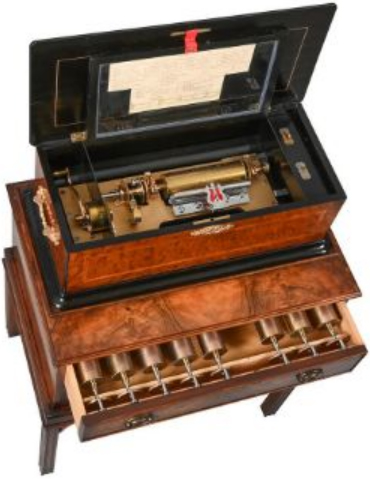
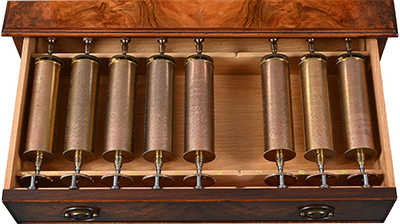
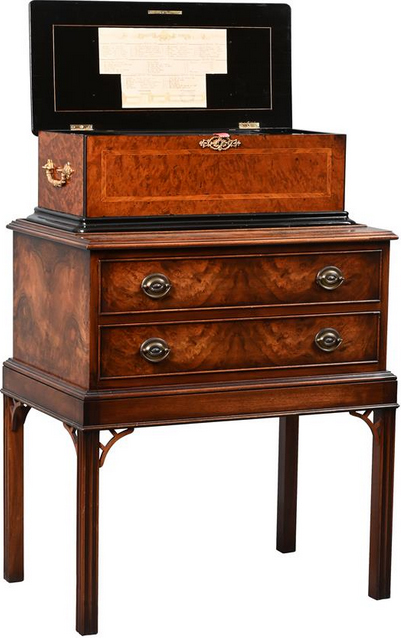 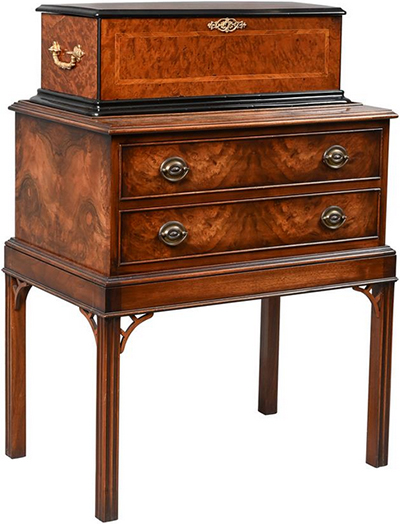 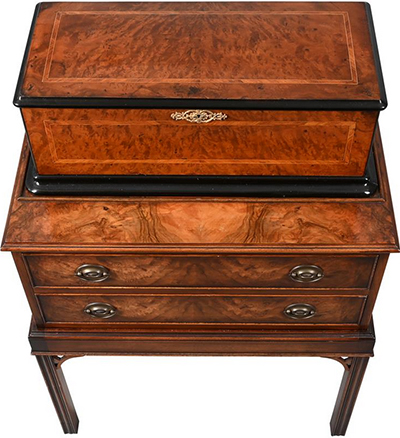 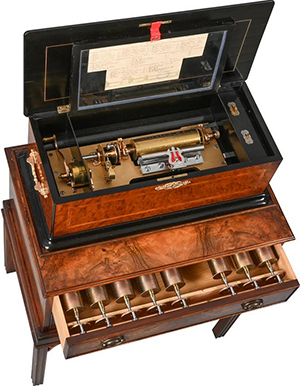


A FINE SWISS FIGURED WALNUT INTERCHANGEABLE CYLINDER MUSIC BOX WITH ZITHER ATTACHMENT
RETAILED BY J.R. LOSADA, LONDON, CIRCA 1870
Nine 7 inch pinned cylinders
66 tooth comb,
set within a gilt painted steel bed with large ratchet-crank wound going barrel, governor and start/stop mechanism to the left hand end opposing tune selection shunt mechanism to the right, with pivoted latch clamps for the cylinder arbor pivots (to allow removal/changing of the cylinders) and hinged zither attachment for the comb operated via a lever within a lyre-shaped panel,
set beneath hinged glazed dust cover flanked by REPEAT/CHANGE and PLAY/STOP operating levers to the right-hand,
the box with angled tulip-wood and box line-strung border to the ogee-edge top over conforming front, veneered sides with generous gilt brass carrying handles, and grained rear, on ebonised ogee moulded skirt base; now with a purpose made figured walnut two-drawer table stand, executed in the George III style with ogee edge top and cockbeaded drawers with the upper fitted to take the additional cylinders, the detachable base with ogee moulded skirt over four square section channel-moulded supports, (originally with ten cylinders, tune sheet original but redacted)
The box 23 cm (9 inches) high, 66.5 cm (26.5 inches) wide, 32.5 cm (12.7 inches) deep; the box on table 104 cm (41 inches) high, 74 cm (29.25 inches) wide, 49 cm (19.25 inches) deep
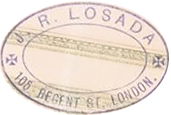
Jose Rodriguez Losada is recorded in Loomes, Brian Watchmakers & Clockmakers of the World, Volume 2 as working in London 1839–75. Losada was a Spanish émigré apparently exiled to London due to his liberal military past during the Liberal Triennium. He worked for James Moore French, initially as a cleaner (employment secured through the The Committee for Aid to Emigrants in London), but he soon learnt the trade and eventually inherited the business operating from the 105 Regent Street premises from 1835. Losada specialised in complex precision clocks and marine chronometers for export to Spanish speaking countries.
In 1866 he donated the Casa de Correos clock in Madrid's Puerta Del Sol to the Madrid City Council free of charge (this clock still takes centre stage for Madrid residents and visitors at midnight on New Year's Eve).
Jose Rodriguez Losada died in 1875 leaving the business in the hands of his nephews, José and Miguel Rodriguez, who continued up until around 1890.
    
|












